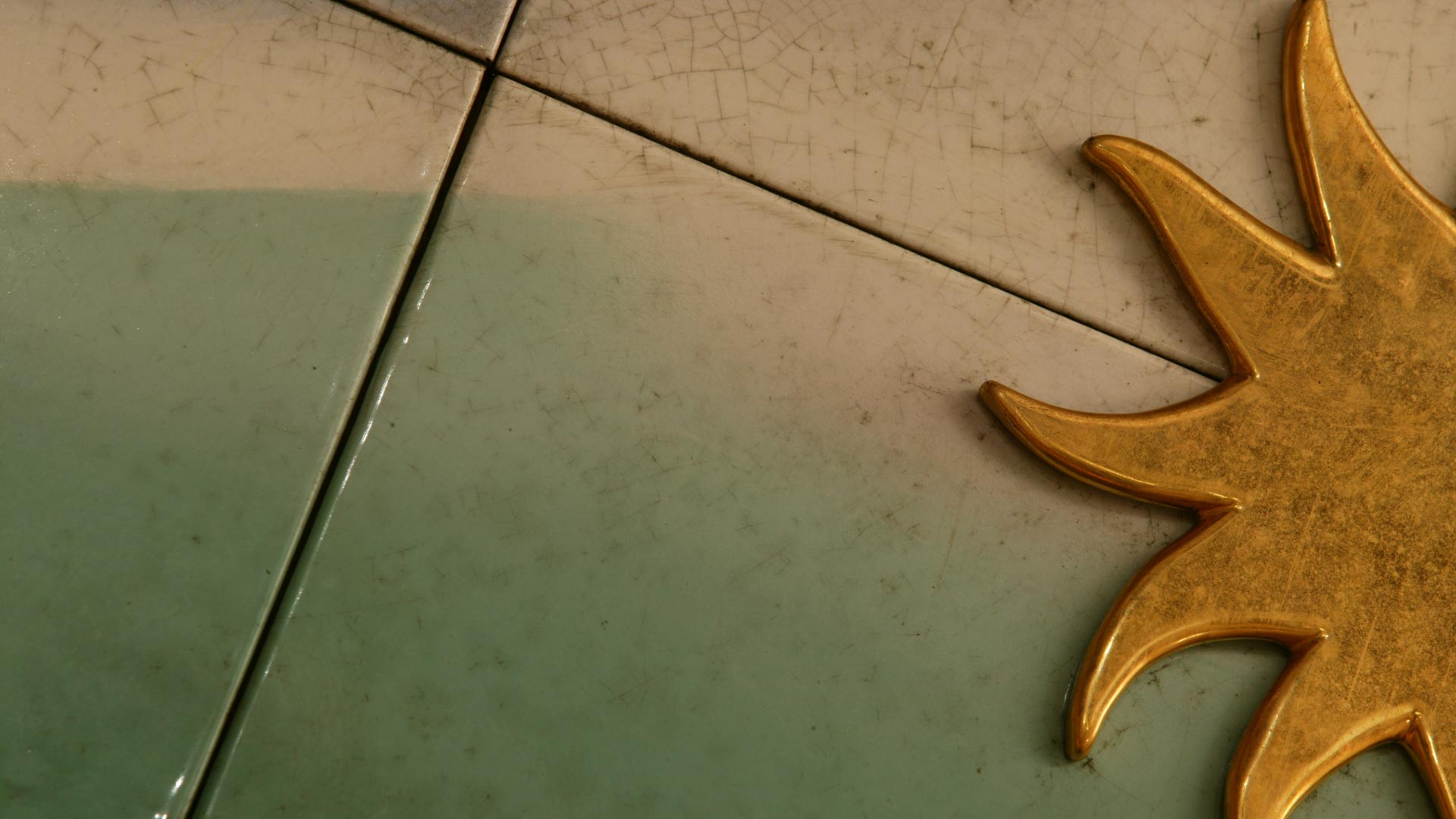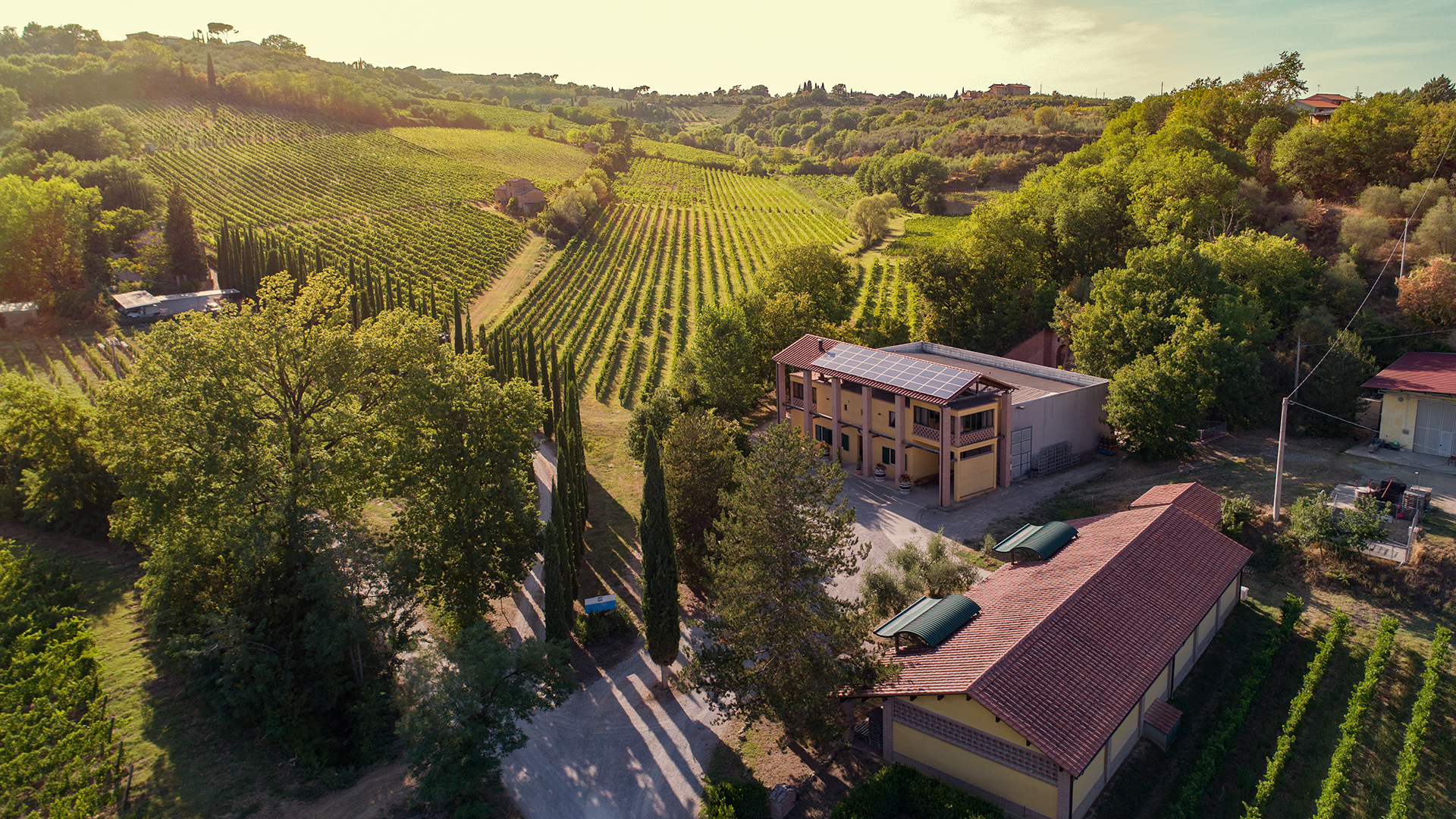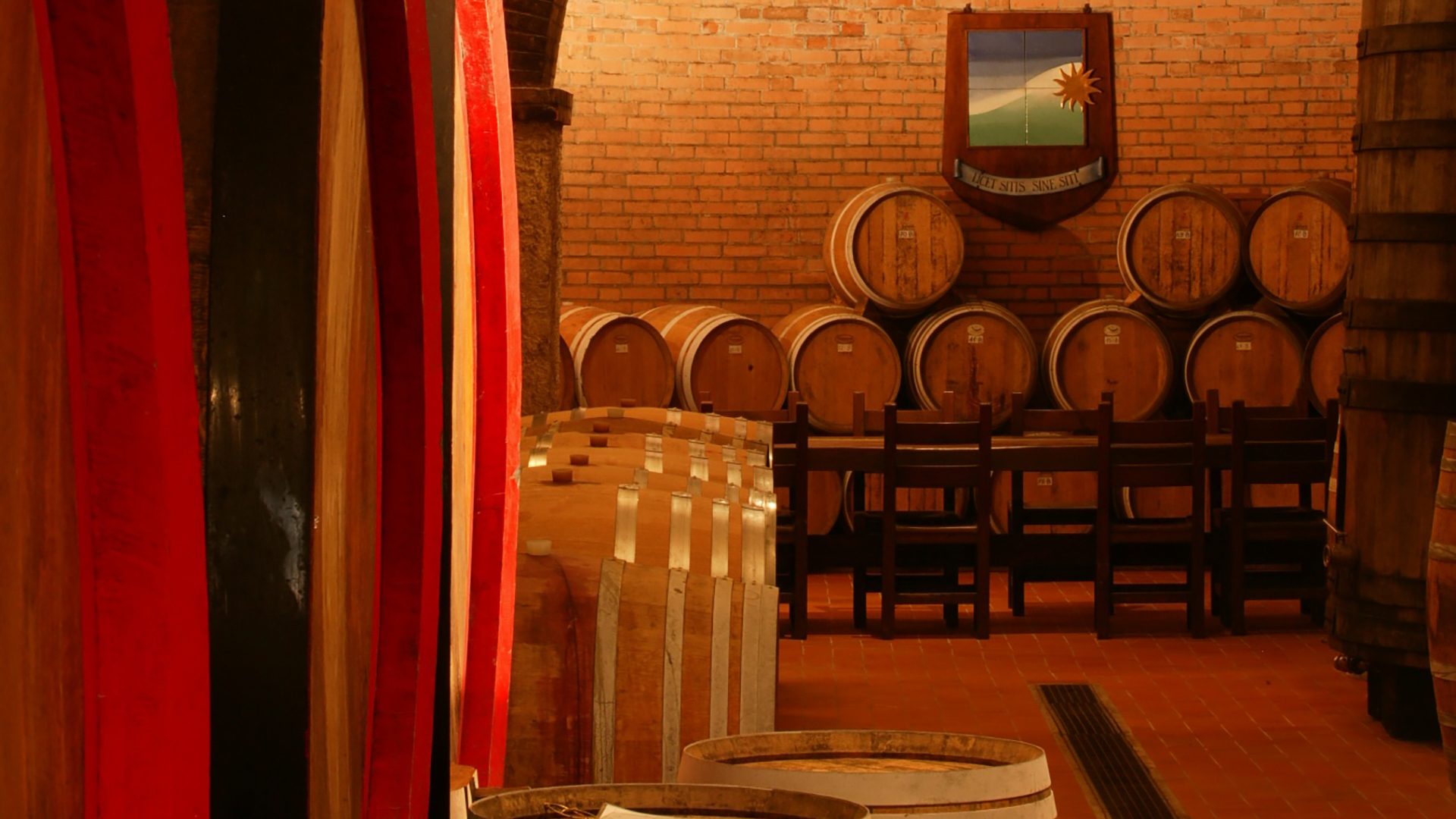The winery

Valdipiatta, producers of Vino Nobile
The Valdipiatta vineyards have become an oasis of biodiversity. Wild plants co-exist with plants Miriam and Giulio Caporali sow each autumn between the vine rows. These so-called cover crops or green manures do two things. Via their roots they keep the soil and its all-important organisms well fed. Above ground cover crops like clover, lupin and vetch produce flowers which attract beneficial insects creating a natural balance against predator insects.

Sustainability
Over the years Tenuta Valdipiatta has taken important steps toward sustainable agriculture and in 2018 the Winery achieved EU organic certification by obtaining the Marchio Comunitario BIO. The vineyards of Tenuta Valdipiatta are an oasis of biodiversity.
Valdipiatta‘s organic philosophy consists in approaching the Estate as a closed ecosytem, where everything allows and supports the balance between flora, fauna and human activity. The most important mission is to guarantee the protection of agrobiodiversity in the soil and vineyards, which helps to preserve the pure expression of the Montepulciano terroir in Valdipiatta's wines. Our approach is based on proper management of the soil, avoiding erosion, maintaining the right level of organic matter and plowing only when it is strictly necessary. The soil’s fertility is assured by using organic fertilizers and compost we produce ourselves by mixing pomace, lees, pruned shoots and manure, and leaving them to ferment together for 12 months. In autumn we sow green manure, which assists the fixation of atmospheric nitrogen into nitrates and makes it available for the plants, and increases the level of organic matter that is particularly necessary for our clayey soil. Our green manure is usually a blend of leguminous plants, graminacee and brassicaceae; these varieties are cut in spring in order to transfer the organic matter and nutritive elements to the soil. Crop monitoring for the purpose of checking the presence of diseases and harmful insects, allows us to minimize phytosanitary treatments by using the proper quantity of copper and sulfur per plot. The preservation of natural enemies (usually destroyed by conventional spraying) and the presence of different varieties of plants and trees at the edges of the vineyards, combined with our agronomic activity, create a complex ecosystem that makes the grapevines naturally stronger and resistant to diseases, and helps to minimize the use of phytosanitary treatments.
The "Vino Nobile"
Valdipiatta’s Vino Nobile wines reflect an approach that respects tradition while understanding what today’s wine lovers are looking for. Clear, bright flavours and a savoury, umami quality which provides both drinkability and real versatility with wine and food pairing. The Sangiovese grape, which is the base of our Vino Nobile wines, tastes smooth when picked at perfect ripeness and aged gracefully in oak barrels before bottling and sale.


The Bordeaux school
Our emphasis on nurturing both terroir and native vines has always gone hand in hand with our interest in applying the results of scientific research and the experience of our neighbours west of the Alps to our vineyards in Montepulciano and our Sangiovese.
Thus, at the beginning of the 90's began our collaboration with Professor Yves Glories, the creator of the Phenolic Maturity Method, who was, at the time, head of the Faculty of Oenology of Bordeaux. This invaluable experience was followed in 2010 by the collaboration with Eric Boissenot, consulting oenologist with presitgious Chateaux of the Médoc such as Lafite Rothschild, Latour, Margaux, Mouton Rothschild and Palmer.

